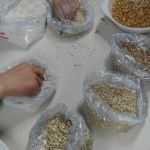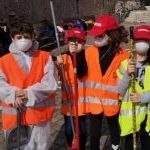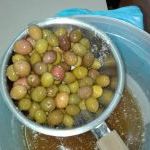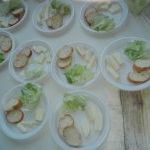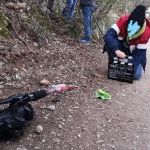Environmental education with Remmondo
Remmondo offer a wide range of environmental education projects dedicated to schools, families and the whole community. The school offer is divided into a series of courses, workshops and projects, structured in independent modulesand aimed at different age groups. Practical learning, arts and film making is used in a creative way so that the students become aware of sustainability and can put eco-behaviours into practice.
Website
Useful links
The National Association for Environmental Education supports environmental education in UK schools
Country
Media
* TOP TIP *
'The Remmondo approach of investigating a topic, doing some practical activities and then producing a report or a film to convey the messages to others is a great learning tool that you can use in school.'
How is the project linked to climate change and sustainability?
The projects, workshops, seminars and training courses tackle a range of topical issues around climate change and the environment - from food and ecology to recycling and waste. Remmondo provides teachers with the technical and practical knowledge to understand the environment that surrounds us and the passion and skills to safeguard it in the future.
Who is involved?
This project involves teachers, commuities, families and pupils. Often projecs are supported by the regional municipality.
How are participants involved?
Remmondo educators involve families, children and teachers by proposing projects or focussed training courses on the theme of environmental sustainability to schools and municipalities, at affordable prices. In addition, brochures and educational materials are constantly available on the dedicated website so that everyone can replicate the projects and workshops created.
Each single laboratory (lasting an average of two hours) will begin with a very short multimedia lesson full of videos, photos and images, and will introduce the key concepts. Students will then undertake practical activities in the scientific, artistic, culinary and sensorial laboratories. They will follow a structured a personalised path that meets the school curriculum. At the end of the workshop, the children will take home the results of their work.
Key steps:
As an example, the 'School Ecology and Children' project enables the students to undertake the following steps:
1. Recieve training by environmental engineers on the issues of pollution in scientific laboratories.
2. Take part in technical film-making guidance with professionals in screenwriting, photography, direction and editing.
3. Create and produce a video that expresses in a clear and effective way what they have learned during the lessons. It will include a message to share with the community, plus their own point of view with respect to the world in which they live.
4. Learn how cinematographic language can be a key teaching tool to deepen what has been learned in an alternative and inspiring way.
5. At the end of the course, all classes will participate in an internal competition with their own video. A jury of experts will choose the one that will participate in the national competition.

